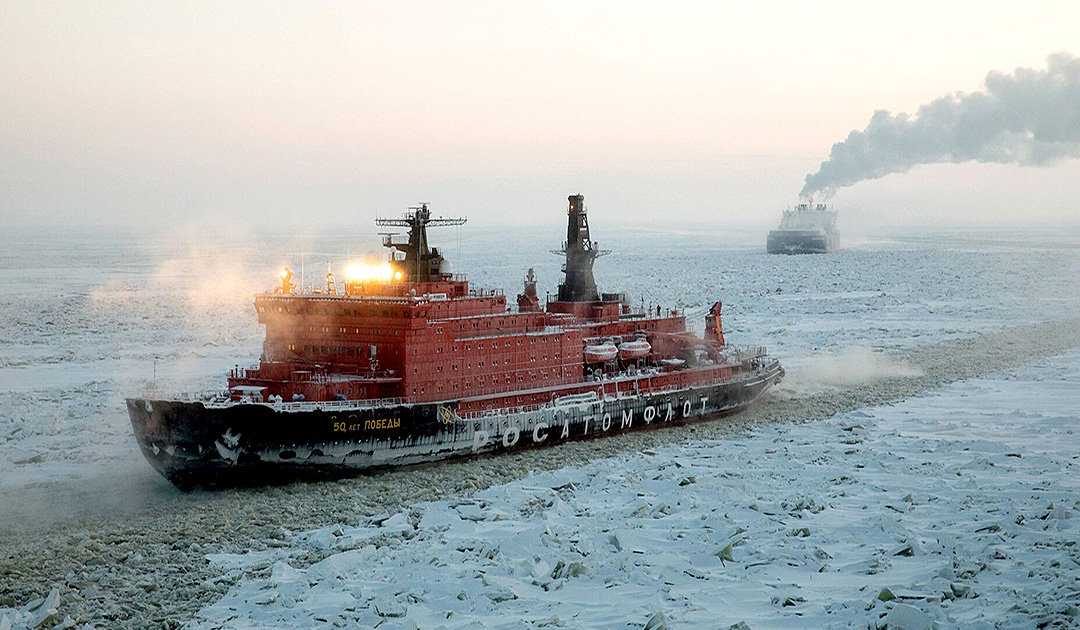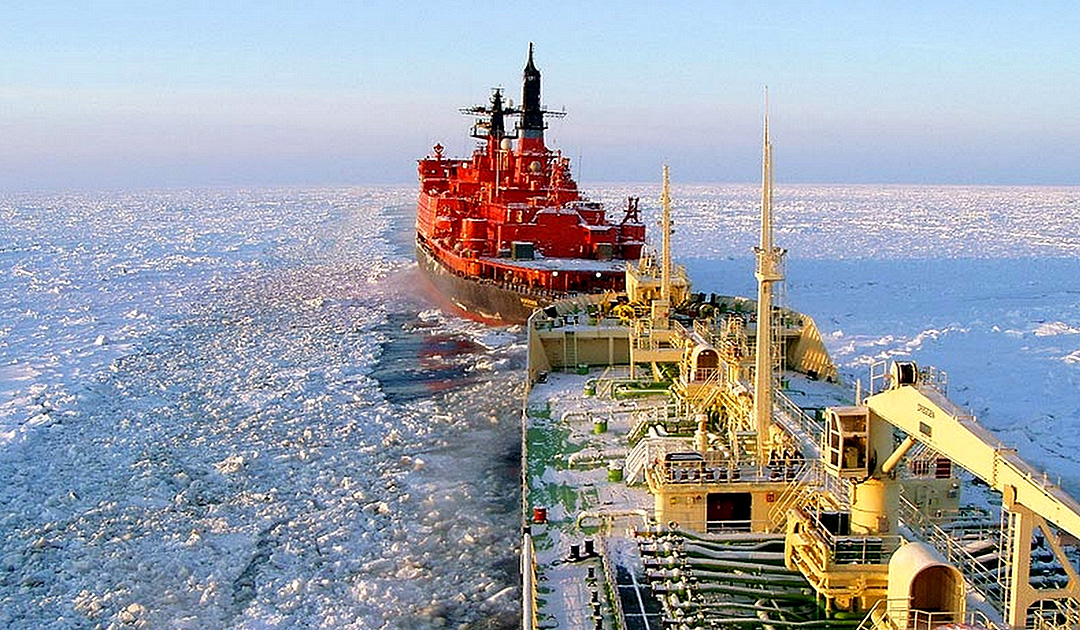
The Russian government has announced plans to massively expand the annual transit volume on the Northeast Passage. “By 2030, we plan to reach a level of 150 million tons, of which 30 million tons will be transit,” First Deputy Prime Minister Andrei Belousov said, adding that a total of 716 billion rubles (8.21 billion euros) will be invested in infrastructure over the next 10 years. The aim is to make the route passable all year round. More than half of the total amount is to be spent before 2024.

Currently, the majority of Arctic cargo volumes are handled by LNG carriers. In the last week of July, five large tankers were on route from the Sabetta LNG terminal eastward through the Bering Strait to China.
According to the Northern Sea Route Administration a total of 64 ships were sailing on the Northern Sea Route on 22 July 2021.
Shipping on the Northeast Passage has increased sharply in recent years, reaching a total volume of 32.97 million tonnes in 2020, but only about 1.3 million tonnes of these were transit shipments.
After the large container shipping companies refrained from sailing their ships through the Northeast Passage, the Russian government came under pressure to achieve the desired goals. Thus, at the beginning of the year, it was decided to build transhipment terminals on both sides of the Northeast Passage. Here, cargo is to be transferred from ‘normal’ container ships to ice-strengthened Arc7 vessels, which will transport the cargo through the icy waters.

DP World and Rosatom cooperate on the Northeast Passage
DP World, one of the largest port operators based in Dubai, has announced plans to work with Russia’s state-owned nuclear energy company Rosatom. DP World operates around 80 container ports worldwide.
Together, they plan to develop a container shipping route between Northwest Europe and East Asia through the Arctic. Rosatom is currently the sole infrastructure operator of the Northeast Passage, which is to be developed into a fully-fledged transport corridor.
“The Northern Transit Corridor promises shorter transit times between East and West,” commented Sultan Ahmed Bin Sulayem, Group Chairman and CEO of DP World.

It has long been a strategic goal of President Vladimir Putin to get more traffic through the Northern Sea Route. “Transporting goods along the Arctic coast should not be more expensive, but cheaper in the long run than through the Suez Canal,” Yury Trutnev told news agencies last month.
Heiner Kubny, PolarJournal
More on the subject:





